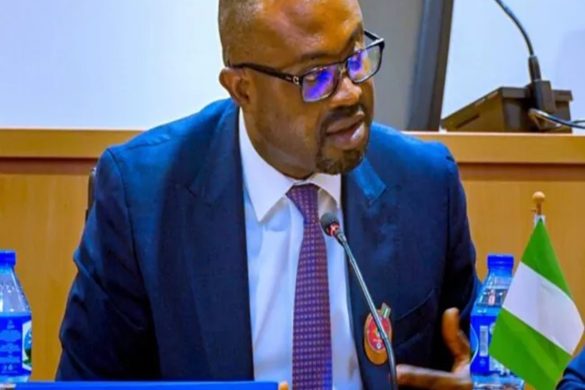Abuja, Nigeria Nigeria’s Minister of Interior, Dr. Olubunmi Tunji-Ojo, has raised alarm over the insufficient budgetary allocations to the nation’s security sector, warning that underfunding critical security agencies could jeopardize the fight against crime, terrorism, and internal instability.
Speaking during a high-level security summit in Abuja on Monday, the Minister stressed that despite the rising threats facing the country from insurgency in the North-East to banditry, kidnappings, and communal violence budgetary allocations to security and internal affairs remain disproportionately low.
“We cannot continue to expect exceptional results from security agencies while starving them of the basic tools, training, and infrastructure required to function,” Tunji-Ojo said. “Security is not a luxury; it is a fundamental pillar of national development.”
The Minister revealed that in the current fiscal year, the Ministry of Interior received what he described as a “barely functional” allocation, barely enough to maintain essential operations, let alone initiate reforms or procure advanced surveillance and response systems.
He cited challenges faced by the Nigeria Security and Civil Defence Corps (NSCDC), Nigeria Immigration Service, and the Nigeria Correctional Service, including inadequate logistics, outdated technology, and poor welfare for officers.
“How do you expect someone with a worn-out uniform, unpaid allowances, and no mobility to respond effectively to a security emergency?” he asked rhetorically.
Dr. Tunji-Ojo called on the National Assembly to re-evaluate priorities during budget planning, urging them to treat security spending as an urgent national emergency. He also appealed to private-sector stakeholders to partner with government in funding critical safety infrastructure through Public-Private Partnerships (PPPs).
Security analysts and civil society groups have long criticized Nigeria’s budget structure, which allocates a significant portion to administrative overhead while leaving key operational sectors like security and health underfunded.
Nigerians have continued to bear the brunt of insecurity, with thousands displaced, hundreds killed, and billions lost annually due to criminal activity and insurgency. The Minister’s remarks echo growing calls for a comprehensive overhaul of national security funding and strategy.
As Nigeria braces for the 2026 fiscal budget cycle, many are watching to see if these concerns will translate into real change or if the nation’s security agencies will be forced to do more with less once again.


